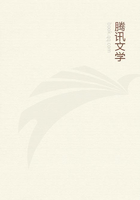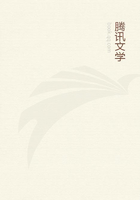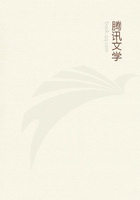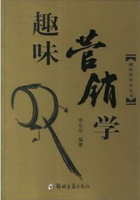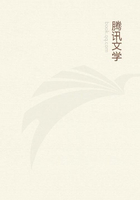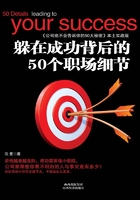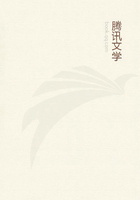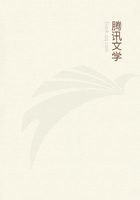2. Another finds himself forced by necessity to borrow money. He knows that he will not be able to repay it, but sees also that nothing will be lent to him unless he promises stoutly to repay it in a definite time. He desires to make this promise, but he has still so much conscience as to ask himself: "Is it not unlawful and inconsistent with duty to get out of a difficulty in this way?"Suppose however that he resolves to do so: then the maxim of his action would be expressed thus: "When I think myself in want of money, I will borrow money and promise to repay it, although I know that Inever can do so." Now this principle of self-love or of one's own advantage may perhaps be consistent with my whole future welfare;but the question now is, "Is it right?" I change then the suggestion of self-love into a universal law, and state the question thus: "How would it be if my maxim were a universal law?" Then I see at once that it could never hold as a universal law of nature, but would necessarily contradict itself. For supposing it to be a universal law that everyone when he thinks himself in a difficulty should be able to promise whatever he pleases, with the purpose of not keeping his promise, the promise itself would become impossible, as well as the end that one might have in view in it, since no one would consider that anything was promised to him, but would ridicule all such statements as vain pretences.
3. A third finds in himself a talent which with the help of some culture might make him a useful man in many respects. But he finds himself in comfortable circumstances and prefers to indulge in pleasure rather than to take pains in enlarging and improving his happy natural capacities. He asks, however, whether his maxim of neglect of his natural gifts, besides agreeing with his inclination to indulgence, agrees also with what is called duty. He sees then that a system of nature could indeed subsist with such a universal law although men (like the South Sea islanders) should let their talents rest and resolve to devote their lives merely to idleness, amusement, and propagation of their species- in a word, to enjoyment; but he cannot possibly will that this should be a universal law of nature, or be implanted in us as such by a natural instinct.
For, as a rational being, he necessarily wills that his faculties be developed, since they serve him and have been given him, for all sorts of possible purposes.
4. A fourth, who is in prosperity, while he sees that others have to contend with great wretchedness and that he could help them, thinks:
"What concern is it of mine? Let everyone be as happy as Heaven pleases, or as be can make himself; I will take nothing from him nor even envy him, only I do not wish to contribute anything to his welfare or to his assistance in distress!" Now no doubt if such a mode of thinking were a universal law, the human race might very well subsist and doubtless even better than in a state in which everyone talks of sympathy and good-will, or even takes care occasionally to put it into practice, but, on the other side, also cheats when he can, betrays the rights of men, or otherwise violates them. But although it is possible that a universal law of nature might exist in accordance with that maxim, it is impossible to will that such a principle should have the universal validity of a law of nature. For a will which resolved this would contradict itself, inasmuch as many cases might occur in which one would have need of the love and sympathy of others, and in which, by such a law of nature, sprung from his own will, he would deprive himself of all hope of the aid he desires.
These are a few of the many actual duties, or at least what we regard as such, which obviously fall into two classes on the one principle that we have laid down. We must be able to will that a maxim of our action should be a universal law. This is the canon of the moral appreciation of the action generally. Some actions are of such a character that their maxim cannot without contradiction be even conceived as a universal law of nature, far from it being possible that we should will that it should be so. In others this intrinsic impossibility is not found, but still it is impossible to will that their maxim should be raised to the universality of a law of nature, since such a will would contradict itself It is easily seen that the former violate strict or rigorous (inflexible) duty; the latter only laxer (meritorious) duty. Thus it has been completely shown how all duties depend as regards the nature of the obligation (not the object of the action) on the same principle.
If now we attend to ourselves on occasion of any transgression of duty, we shall find that we in fact do not will that our maxim should be a universal law, for that is impossible for us; on the contrary, we will that the opposite should remain a universal law, only we assume the liberty of making an exception in our own favour or (just for this time only) in favour of our inclination. Consequently if we considered all cases from one and the same point of view, namely, that of reason, we should find a contradiction in our own will, namely, that a certain principle should be objectively necessary as a universal law, and yet subjectively should not be universal, but admit of exceptions. As however we at one moment regard our action from the point of view of a will wholly conformed to reason, and then again look at the same action from the point of view of a will affected by inclination, there is not really any contradiction, but an antagonism of inclination to the precept of reason, whereby the universality of the principle is changed into a mere generality, so that the practical principle of reason shall meet the maxim half way. Now, although this cannot be justified in our own impartial judgement, yet it proves that we do really recognise the validity of the categorical imperative and (with all respect for it) only allow ourselves a few exceptions, which we think unimportant and forced from us.

